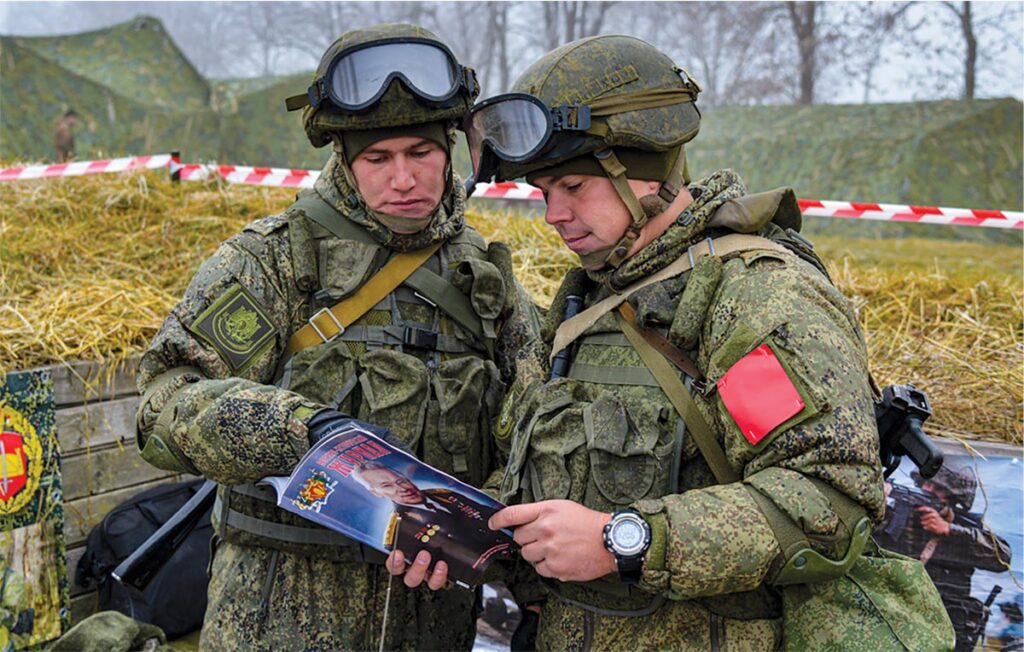This content discusses the importance of psychological preparation in the military. It highlights the mindset of a warrior and how it is crucial in military operations. The content explores the core principles of psychological preparedness, such as self-discipline, mental resilience, and situational awareness. It also discusses the role of psychological preparation in combat, including strengthening mental endurance, managing fear and anxiety, and enhancing leadership skills. The content further explains the various psychological training methods used in the military, such as mental conditioning, stress inoculation, and mental visualization. Overall, it emphasizes the critical role of psychological preparation in military success and survival.
Warrior Mindset: Military Experts Discuss the Importance of Psychological Preparation
Introduction
The mindset of a warrior is crucial in military operations, where soldiers often face extreme adversity and high-stress environments. Physical training and technical skills are undoubtedly important, but the psychological preparation is equally significant. In this article, we will delve into the topic of warrior mindset, exploring why military experts highlight its importance for success and survival on the battlefield.
The Foundation of Psychological Preparedness
Psychological preparedness is based on several core principles that form the foundation of a warrior mindset:
Self-Discipline
Soldiers with a warrior mindset possess unparalleled self-discipline. They are able to control their emotions, maintain a clear focus, and adhere to the strictest protocols and procedures. Self-discipline is crucial in high-pressure situations, as it allows soldiers to make rational decisions and carry out tasks efficiently, even when under extreme stress.
Mental Resilience
In the face of adversity, mental resilience is what sets warriors apart. It is the ability to bounce back from setbacks, overcome obstacles, and maintain a positive and determined attitude. Mental resilience enables soldiers to push through physical and mental fatigue, adapt to rapidly changing circumstances, and persevere even in the most challenging situations.
Situational Awareness
A warrior’s ability to maintain situational awareness is vital for survival. This involves being constantly aware of one’s surroundings, accurately assessing the environment, and anticipating potential threats or opportunities. Situational awareness allows soldiers to make informed decisions, take appropriate actions, and protect themselves and their comrades from harm.
The Role of Psychological Preparation in Combat
Psychological preparation is crucial in combat scenarios, where the stakes are high, and split-second decisions can mean the difference between life and death. Military experts underline the following aspects of psychological preparation:
Strengthening Mental Endurance
Combat situations often involve prolonged periods of intense stress and fatigue. Psychological preparation helps soldiers develop mental endurance, enabling them to sustain focus and performance even in prolonged engagements. By training their minds to push through physical and mental limitations, soldiers with a warrior mindset can maintain effectiveness over extended periods in the field.
Managing Fear and Anxiety
Fear and anxiety are natural reactions during combat, but they can impair decision-making and performance if not properly managed. Psychological preparation helps soldiers eliminate or control detrimental fear responses, enabling them to remain calm, composed, and energized even amidst chaos. Effective fear management allows warriors to make rational decisions and carry out their duties without hesitation or unnecessary risks.
Enhancing Leadership Skills
Military leaders with a warrior mindset inspire and motivate their subordinates in challenging situations. Psychological preparation plays a crucial role in developing effective leadership skills. Leaders must remain calm, confident, and composed while imparting a sense of purpose and direction to their teams. By fostering resilience, self-discipline, and situational awareness, psychological preparation equips leaders to make sound judgments and guide their units to success.
Psychological Training Methods
The military employs various techniques to instill a warrior mindset and enhance psychological preparedness:
Mental Conditioning
Mental conditioning involves exposing soldiers to scenarios that simulate high-stress combat situations. Through rigorous training, soldiers become accustomed to functioning effectively under pressure, allowing them to perform optimally when faced with real-life challenges. Mental conditioning techniques include realistic simulations, intense physical training, and combat-focused exercises.
Stress Inoculation
Stress inoculation involves gradually exposing soldiers to increasing levels of stress and adversity to desensitize them to the emotional and physiological effects. This technique helps soldiers develop a tolerance to stress, making them more resilient and less likely to succumb to panic or anxiety during combat scenarios. Stress inoculation can involve exposure to loud noises, simulated combat scenarios, and controlled discomfort.
Mental Visualization
Mental visualization techniques involve mentally rehearsing scenarios and actions in one’s mind, reinforcing muscle memory and optimal responses. This technique helps soldiers develop quick decision-making skills, boosting their reaction time in high-pressure situations. By visualizing success and envisioning positive outcomes, soldiers can reduce performance anxiety and enhance overall performance.
Conclusion
A warrior mindset is a critical factor in military success and survival. Psychological preparation equips soldiers with the mental tools necessary to overcome adversity, make critical decisions, and remain resilient in high-stress environments. With a foundation of self-discipline, mental resilience, and situational awareness, warriors can function at their best when it matters most. Through mental conditioning, stress inoculation, and mental visualization techniques, military experts continue to refine the methods of psychological preparation, ensuring that soldiers are mentally equipped for the challenges they may face on the battlefield.
